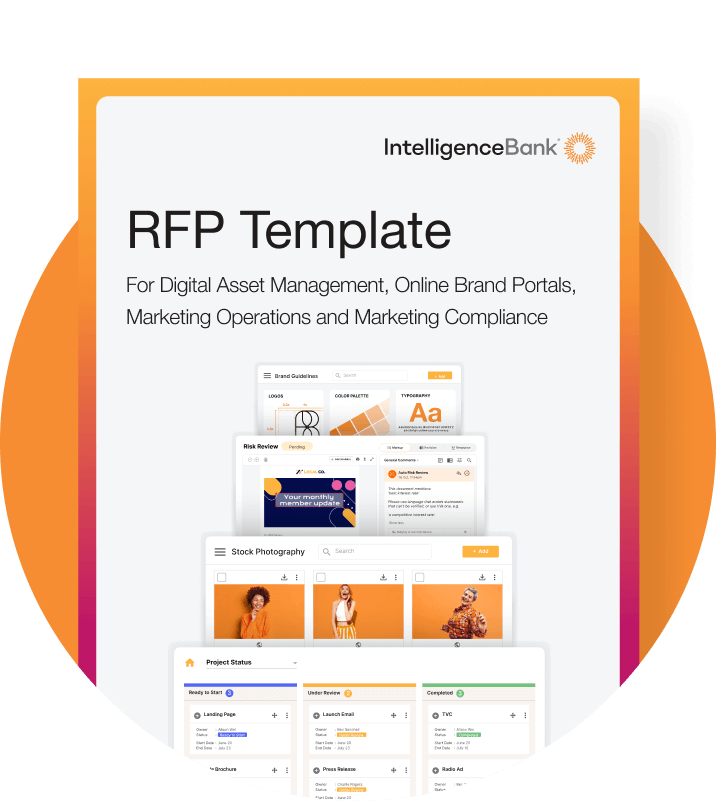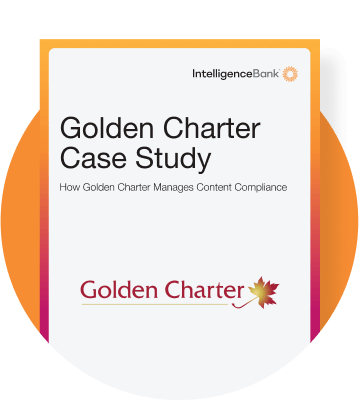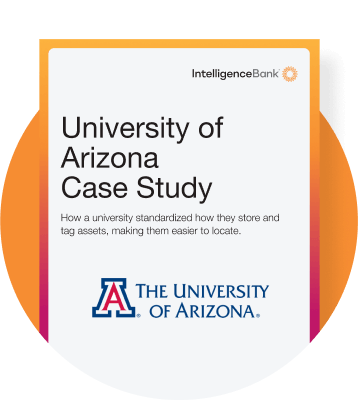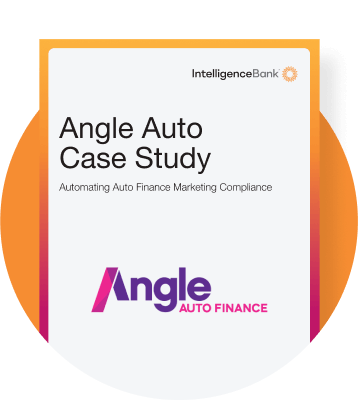Navigating the complexities of marketing compliance regulations is a constant challenge for finance marketers operating in the European Union (EU). Under the MiFID II Directive, marketing materials must comply with a range of conditions. For marketers, staying true to them is not just about avoiding penalties – it’s about building trust, maintaining credibility, and staying competitive in a highly regulated industry.
This article covers the importance of the MiFID II in the EU, the fines and sanctions for non-compliance, and how automation and AI-powered solutions are helping finance marketing compliance teams review content at scale and reduce the instances of human error.
Disclaimer: This document is not intended as a substitute for legal advice. It has been prepared using publicly available information and insights from industry experts. Companies should consult legal and compliance professionals when establishing internal protocols.
What Legislation Applies to Finance Marketing in the European Union?
In addition to the standard General Data Protection Regulation (GDPR) and the Unfair Commercial Practices Directive, financial marketers in the EU must also comply with the MiFID II Directive. MiFID II is a comprehensive set of EU laws that regulates financial markets and outlines how financial services firms should interact with their clients. It addresses key areas such as investor protection, transparency, and fair trading practices, ensuring that businesses operate ethically and consumers are protected.
To help firms interpret and consistently apply MiFID II and other regulations, the European Securities and Market Authority (ESMA) have produced guidelines with specific rules they must follow.
These regulations cover key areas such as:
- Transparency: Ensuring that all marketing materials clearly disclose the nature of the product or service, including any risks or limitations.
- Accuracy: Avoiding misleading claims and ensuring that all information is substantiated.
- Fairness: Ensuring that marketing practices do not exploit vulnerable consumers or create unfair advantages.
- Consumer Protections: Providing clear and accessible information to help consumers make informed decisions.
What Are the Penalties for Non-Compliance?
Overlooking marketing compliance regulations can have severe consequences. Regulatory bodies like ESMA as well as other national authorities strictly enforce violations, as they can jeopardize consumer protection and erode trust in the industry.
Potential penalties for failing to comply include:
- Fines: Companies can face significant fines for non-compliance. For example, under MiFID II, fines can reach up to €5 million or 10% of annual turnover, depending on the severity of the violation.
- Reputational Damage: Publicized violations can damage a company’s reputation, leading to a loss of customers and business opportunities.
- Increased Scrutiny: Non-compliant companies may face more frequent audits and inspections, which can be time-consuming and costly.
- Legal Action: Significant breaches can result in lawsuits from consumers or regulatory enforcement actions.
It’s penalties such as these that serve as a reminder that marketing materials must meet legal standards and align with industry best practices to maintain compliance.
Challenges of Upholding MiFD II Regulations
Ensuring compliance with MiFID II is essential for financial services marketing in the EU, but many firms face significant hurdles in meeting these regulatory requirements.
Strict and Evolving Regulatory Requirements
Keeping up with the stringent and ever changing detailed requirements of MiFID II can be complex and time-consuming. Ensuring marketing materials align with these regulations of the time often requires ongoing training, frequent policy updates, and cross-department collaboration.
High Volume of Marketing Materials
Due to the nature of their business, financial institutions produce a vast amount of marketing content, from investment brochures and digital ads to email campaigns and social media updates. Volume has grown exponentially since the mainstream use of GenAI content tools which is only adding to the inventory. Ensuring every piece aligns with MiFID II standards in placing an increasingly heavy burden on compliance teams.
Time-Sensitive Marketing Campaigns
Marketing teams in the financial sector often work under tight deadlines, leaving little time for thorough MiFID II compliance checks. Rushed approvals can lead to regulatory breaches, fines, or reputational damage.
Complexity in Rule Interpretation
MiFID II regulations, as with all areas of the law, can be open to different interpretations depending on the reviewer. This can lead to inconsistencies in how compliance is applied across various marketing materials, teams, and jurisdictions.
Limited Compliance Resources
Many financial firms have modest compliance teams responsible for reviewing an ever-growing volume of marketing content. Keeping up with evolving MiFID II regulations while managing workloads can be a constant challenge.
Can Compliance with EU Marketing Rules Be Automated?
Absolutely. Automation and AI play a crucial role in streamlining the compliance process, minimizing errors, and ensuring consistent adherence to legal standards.
Here’s how IntelligenceBank’s compliance review software works:
- Create Risk Rules: IntelligenceBank offers a range of pre-existing rules tailored to specific legislation by industry and location, including rules for the MiFID II Directive and ESMA guidelines. These rules can be customized or expanded to fit your organization’s compliance needs.
- Automatically Review Content: Marketing content is automatically reviewed using AI-powered technology to detect breaches of compliance rules. Reviews can be done at any stage in the production cycle—even when content is already live. The platform provides feedback and suggestions for improvement.
- Keep a Record: The platform automatically maintains records of all comments made on PDFs, artwork, and images, so they can easily be referred to down the line.
Benefits of Automating Compliance Reviews
While there’s no replacing human expertise for curly compliance decisions, AI can handle the straightforward, cut-and-dry rules set by regulators.
In fact, IntelligenceBank research shows that more than 75% of the feedback from Legal and Compliance teams on marketing content is about common mistakes – such as incorrect claims, missing disclaimers, or inaccurate disclosures. These are exactly the kinds of issues AI can catch and fix instantly, freeing up Compliance teams to focus on other priorities. Here’s a snapshot of the results:
- 17% of comments relate to brand compliance issues: These focus on things like brand name usage, logo issues, font sizes, tone, and readability.
- 38% of comments relate to legal and compliance issues: Common concerns include outdated disclaimers, inaccurate claims, missing disclosures, and specific legal language requests.
- 22% of comments are about wording: This includes phrasing issues around claims and product disclosures, rather than basic spelling and grammar.
- 23% of comments require direct human intervention: These are cases where nuance or specific context is needed.
On the whole, automating compliance reviews offers the following advantages:
- Improved Accuracy: AI tools can quickly identify errors and omissions, reducing the risk of non-compliance.
- Faster Turnaround Times: Automated reviews speed up the approval process, enabling marketing teams to meet tight deadlines.
- Consistency: AI applies the same standards across all materials, eliminating inconsistencies in interpretation.
- Cost Savings: By reducing manual review time, companies can lower compliance-related costs. Predicted savings can be estimated using our Content and Web Risk Reviews Cost Savings Calculator.
- Enhanced Consumer Trust: Ensuring accurate and transparent communications helps build trust with consumers.
Why Industry-Specific Compliance Packages Make a Difference
While AI marketing compliance review software can be customized from the ground up, when it comes to industry standards, it makes sense to select a solution tailor-made for the task at hand. While it still has scope for personalization, a marketing compliance platform built to cater for known industry or geographic regulations is engineered to detect risks with precision.
This targeted approach not only enhances accuracy but also significantly reduces setup and deployment time.
Beyond efficiency, industry or rule-specific compliance platforms enable teams to stay ahead of ever-changing regulations. With the industry’s rules and enforcement priorities constantly evolving, regulatory scrutiny is only increasing.
IntelligenceBank’s regularly updated rules ensure teams have access to the latest compliance standards, allowing them to adapt quickly and confidently to new requirements.
Simplified European Marketing Compliance Checklist
To help you give you a flavor for the types of breaches IntelligenceBank’s AI compliance platform can detect, we’ve distilled some of the key requirements into a simplified checklist. This is by no means an exhaustive list, however it covers some of the most important points to keep in mind:
- Clear and Accurate Claims: Ensuring that all claims are accurate, substantiated, and not misleading.
- Prominent Disclosures: Make required disclosures clear and conspicuous, avoiding fine print.
- Transparency: Clearly disclose any risks, limitations, or exclusions in your marketing materials.
- Cost Transparency: Provide clear information about fees, charges, and other costs.
- Balanced Presentations: Present both the benefits and limitations of the product fairly.
- Consumer Protections: Ensure that vulnerable consumers are not exploited and that all communications are easy to understand.
Get the complete list with IntelligenceBank’s industry-specific risk reviews.
Regulators Are Leveraging AI for Oversight
Just as companies are adopting AI for compliance, regulators are also using advanced technology to monitor adherence to marketing regulations. While the EU and US marketing compliance regulators are yet to launch hard with AI monitoring, over in the UK, the FCA’s Market Watch program uses AI to scan for wrongdoing to ensure fair trading practices.
This trend highlights the importance of staying ahead of regulatory expectations by embracing automation and ensuring that your marketing materials meet the highest standards of transparency and accuracy.
Want a Complete Checklist? Let’s Talk
While the checklist above provides an overview, fully complying with EU marketing regulations requires a detailed analysis of all legal requirements and how they apply to your marketing materials.
IntelligenceBank’s compliance platform offers a comprehensive, industry-specific rule library that can be customized to your company’s needs. By automating content reviews and ensuring adherence to best practice rules, you can reduce risk, save time, and maintain consumer trust.
Contact us today to learn how we can help you streamline your compliance process and stay ahead of regulatory scrutiny.




